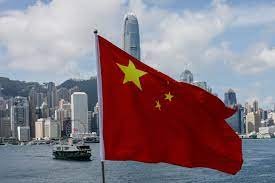#Chicago #wheat #futures #market #China #imports #UScargoes #worldsupplies
In the dynamic and often unpredictable world of agricultural commodities, the Chicago wheat futures market experienced a notable slump on Tuesday. This downturn has been attributed primarily to actions from China, the world’s leading importer of wheat, who recently made the decision to cancel additional shipments of U.S. wheat. This move comes at a time when global supplies of wheat are abundant, casting a complex light on the international grain trade dynamics and market speculations.
The cancellations by China can be seen as a strategic maneuver within a broader context of global wheat supply and demand. Currently, the world is witnessing a period of plentiful wheat supplies, thanks to favorable weather conditions and strategic reserve policies implemented by major wheat-producing countries. These abundant supplies have provided importing countries with a wider range of sourcing options, subsequently increasing market competition and influencing international trade flows. China’s decision to cancel U.S. cargoes may reflect both a response to the current market glut and an attempt to leverage more favorable terms or seek alternative sources that align with its economic or strategic interests.
From a market perspective, the reaction to China’s cancellations is a textbook example of how international actions can ripple through the commodities markets, affecting prices and trading strategies. For traders and investors, these developments underscore the importance of keeping a close eye on geopolitical and trade-related news, which can have immediate and significant impacts on market positions. Additionally, this situation highlights the interconnectedness of global markets, where a decision by a major player like China can sway market sentiments and lead to a drop in futures prices, as seen in Chicago. As the situation unfolds, stakeholders in the wheat market, from farmers to exporters and investors, will need to navigate these challenges, adapt their strategies, and anticipate further shifts in the global trade environment.






Comments are closed.